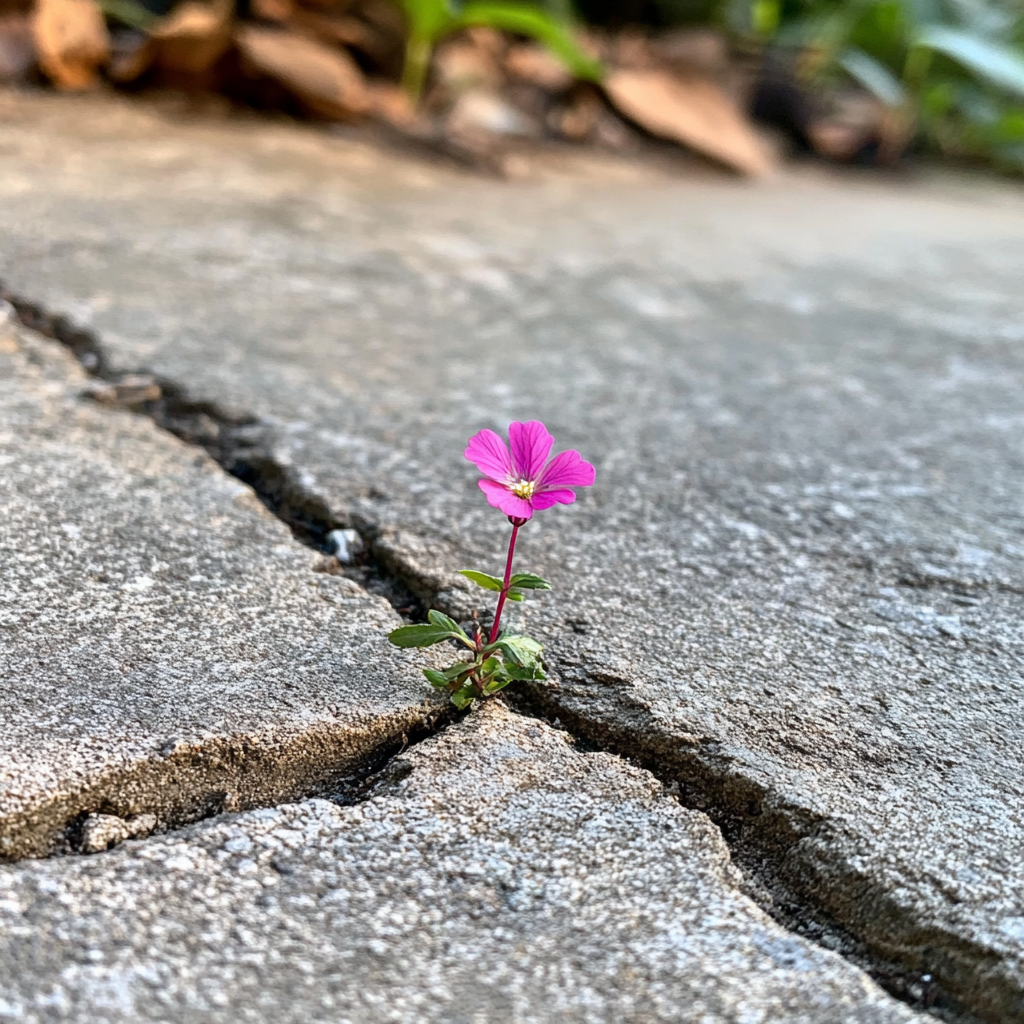Opening Verse
“And let us not be weary in well doing: for in due season we shall reap, if we faint not.”
— Galatians 6:9, KJV
Introduction
There are times in life when you may feel stuck, overlooked, or even out of place. You might wonder why you are where you are. But God often plants us in places we don’t expect, intending for us to grow and be fruitful, even in difficult or uncomfortable situations.
Devotional Story
A young woman named Emily had recently moved to a new city, far from her family and friends. She struggled to adjust to the unfamiliar environment and felt like she didn’t belong. Everything seemed harder—her job, making friends, and even finding a church to attend. She often asked God why He had placed her there.
One day, as Emily walked through a park, she noticed a small flower blooming in a crack in the sidewalk. It wasn’t in a garden or a flowerbed but in a place that seemed unlikely for anything to grow. Yet, it was flourishing. Emily felt a nudge from the Holy Spirit, reminding her that just like that flower, she too could thrive where God had placed her. The circumstances didn’t have to be ideal; she only needed to trust in God’s plan.
Inspired, Emily began to look at her surroundings with new eyes. She joined a local Bible study, reached out to her coworkers, and even volunteered at a nearby shelter. Slowly but surely, she started to see God’s purpose in her being planted in that city.
What This Means
God sometimes places us in situations that challenge us, not to harm us but to make us grow. Like a flower that blooms even in the cracks of a sidewalk, we can flourish in unexpected places when we lean on His strength. You may not understand why God has you where you are right now, but trust that He has a purpose for it. You are called to bloom where you are planted, regardless of the circumstances.
Think About This
- Are you resisting where God has planted you? How can you embrace it and trust Him?
- In what ways can you “bloom” in your current situation, no matter how difficult it may seem?
Prayer
Dear Heavenly Father, thank You for planting me where I am. Help me to trust Your plan and to bloom even when the soil around me feels rocky or dry. Give me the strength and grace to grow where You have placed me, knowing that Your purpose will be fulfilled in Your time. Amen.
Closing Verse
“Trust in the LORD with all thine heart; and lean not unto thine own understanding. In all thy ways acknowledge him, and he shall direct thy paths.”
— Proverbs 3:5-6, KJV


